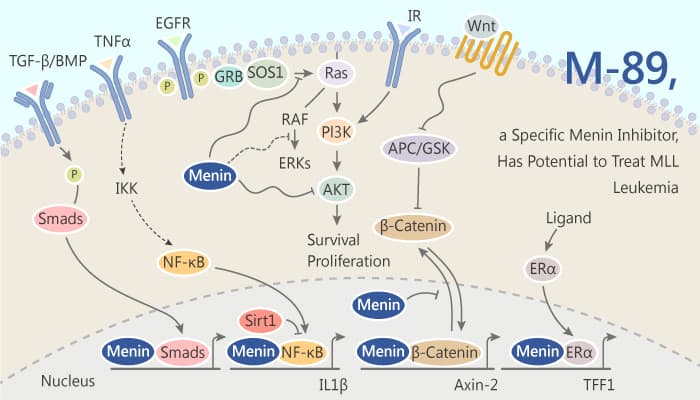Mixed lineage leukemia (MLL) protein is a histone methyltransferase and specifically methylates histone H3 lysine 4 residue (H3K4). MLL gene rearrangement accounts 5-10% in acute myeloid leukemia in adults and almost 70% of acute lymphoblastic leukemia in infants. As far as the current treatment regimen is concerned, adult leukemia patients carrying a MLL rearrangement, or MLL leukemia, have very poor prognosis.
Additionally, up to date, many studies have demonstrated that inhibition of the MLL protein−protein interaction represents a promising new therapeutic strategy for the treatment of acute leukemia carrying MLL fusion (MLL leukemia).
A study from Angelo Aguilar discovered and identified a highly potent and specific menin inhibitor M-89.
M-89 exhibits a Kd of 1.4 nM for binding to menin. In addition, M-89 inhibits the menin-mixed lineage leukemia (Menin-MLL) protein-protein interaction and has potential to treat MLL leukemia. M-89 represents a member of a class of promising noncovalent menin inhibitor.

Moreover, in vitro, M-89 effectively inhibited cell growth in the MV4;11 cell line, achieving an IC50 value of 25 nM. In comparison, M-89 has an IC50 value of 10.2 μM in the HL-60 cell line. Apart from, M-89 also stabilized cellular menin protein in both MV4;11 and MOLM-13 cells in a dose-dependent manner. It significantly enhanced the thermal stability of cellular menin protein at concentrations as low as 3.7 nM and reaches a maximal effect at 33-100 nM.
To conclude, M-89 is a promising clinical candidate to treat MLL leukemia.